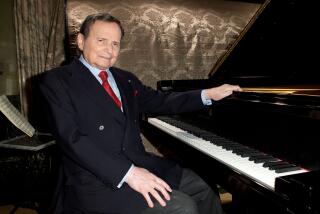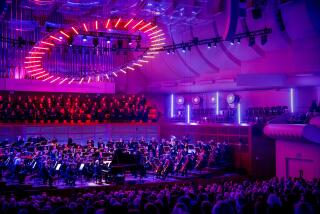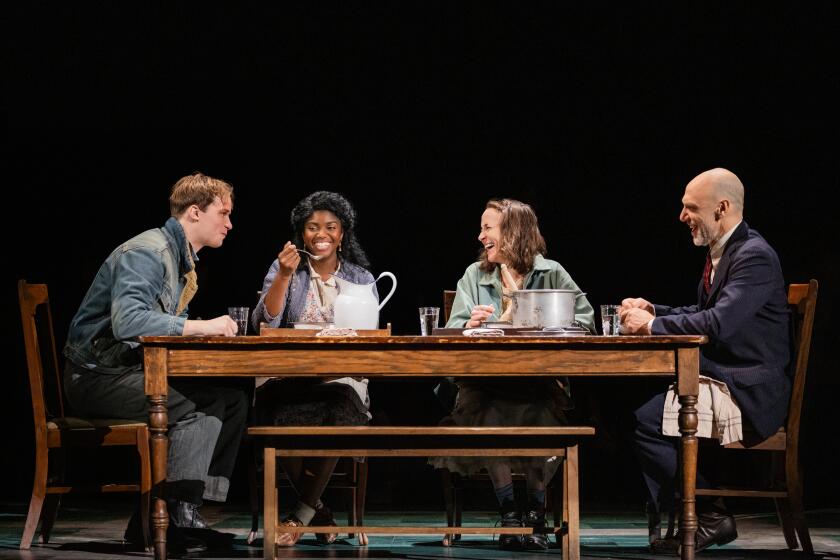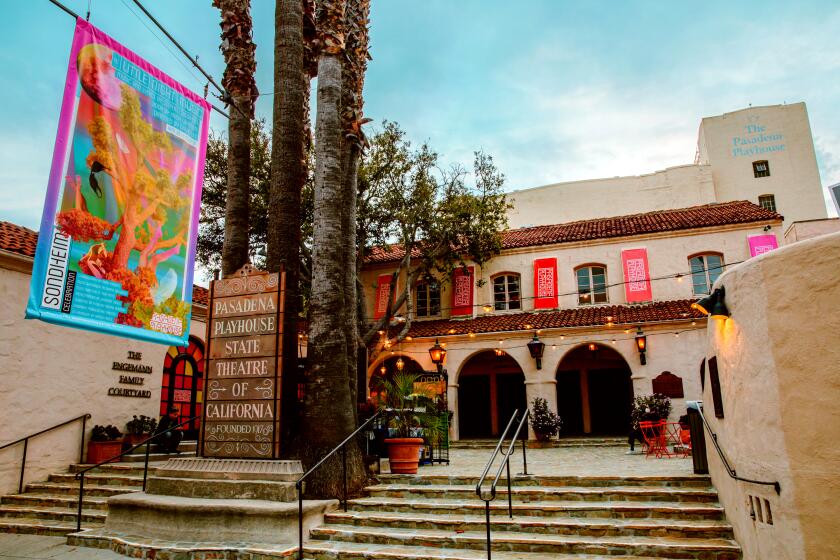MUSIC REVIEW : Mehta Meets Strauss: Superpow
Bad music has always brought out the best in Zubin Mehta. Subtlety, elegance, introspection and understatement are not his things. Piano was never his forte.
But give the man a big, rumbling, rambling, snorting, slurping, soaring, whomping, thumping, zonking, rattling, repetitive challenge that builds reluctantly to a cataclysmic cadence, and watch out. Pow.
Make that superpow.
The Los Angeles Philharmonic gave its former music director an ideal challenge--or allowed him to bring his own--Thursday night at the Dorothy Chandler Pavilion. The somewhat redundant program, devoted exclusively to music of Richard Strauss, climaxed with the “Symphonia Domestica.”
You recall the “Domestica.” After a long and decent respite, the Philharmonic revived it just last year for Christof Perick.
The composer cranked out the decadent indulgence in a fit of egomania back in 1903. He felt the world simply had to know all about the mundane doings, comings and goings in the Strauss Haus . With brilliant over-orchestration and a shameless ear for the magnified detail, the master painted an affectionate, presumably realistic, probably idealized, unabashedly vulgar tone-portrait of life at home with his much-loved, eminently shrewish wife, Pauline, and his much-loved, eminently adorable son, Bubi. The critical reception at the time of the premiere was far less ecstatic than the score itself. Eventually, Strauss stripped away the programmatic descriptions. Ever the optimist, he decided that the music should be judged on its own merits.
The world cannot forget, however, that this was supposed to be his symphonic ode to the joys of marital squabbling, baby bathing, working, dreaming, waking and, yes, making love (no doubt a daring gambit for 1903). Posterity should be grateful, we suppose, that Strauss at least kept his bathroom door closed.
There is only one way to play the “Domestica,” if it must be played at all. With whole-hearted conviction, with passion, with urgency, and with expressive grandeur.
Mehta did that, and more. He pulled out all the emotive stops, savored the vast dynamic scale and somehow managed to sustain a semblance of tension over the long haul.
Pretending the challenge was a deathless masterpiece, he inspired propulsive, extraordinarily precise and gratifyingly cohesive responses from the Philharmonic. The heroic slush pump was in fine form.
The first half of the evening proved less momentous. Thank goodness.
To open the festivities, Mehta introduced Clemens Krauss’ arrangement of a nine-minute “Symphonic Fragment” from “Die Liebe der Danae,” (1940) a demonstration of the mellow nostalgia that marked Strauss’ twilight years. The U.S. premiere of the opera took place, incidentally, at USC in 1964.
The music is affecting. The Philharmonic performance was a bit heavy-handed.
For the centerpiece of his program. Mehta turned to the fascinating convolutions of Strauss’ Second Horn Concerto (1942). Jerry Folsom stepped up from his principal chair to play the forbidding solos with much bravura flair and tone that sometimes tended toward the raucous. His colleagues provided attentive accompaniment.
More to Read
The biggest entertainment stories
Get our big stories about Hollywood, film, television, music, arts, culture and more right in your inbox as soon as they publish.
You may occasionally receive promotional content from the Los Angeles Times.






